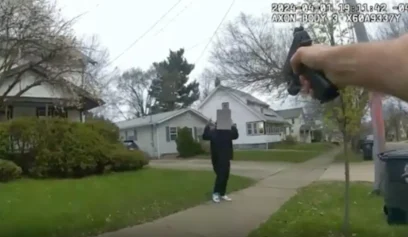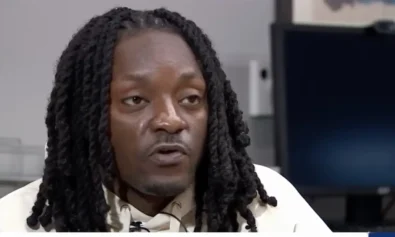Six weeks after his death, the legacy of the late Jackson, Miss., Mayor Chokwe Lumumba has a chance to be continued as his son Chokwe Antar Lumumba finished in a dead heat with City Councilman Tony Yarber in Tuesday’s election to fill the vacated mayor’s seat. The winner will be determined in two weeks in an April 22 runoff.
The late mayor’s son beat a crowded field of 13 candidates by collecting 30.75 percent of the vote, with Yarber right behind him at 30.72 percent—a difference of just 10 votes, though that number is likely to change as affidavit and absentee ballots are counted. City Council President Melvin Priester Jr. came in a distant third with 15.27 percent.
The turnout was about 31 percent of the city’s 114,000 registered voters, which was slightly higher than last May’s Democratic primary race, when his father beat incumbent Mayor Harvey Johnson Jr.
Over the next two weeks, Lumumba said he will be communicating his vision to the people.
“We want to make sure our message is clear,” he said, according to the Jackson Clarion-Ledger. “If the people didn’t know our message that was our fault.”
He started the day by visiting the graves of his mother and father, the late Mayor Chokwe Lumumba, whose death on Feb. 25 at the age of 66, eight months into his term, brought about the special election.
“I thanked them for pushing me and getting me this far,” said Lumumba, a lawyer like his father. “I think my father would be proud of me. I like to think both of my parents would be proud.”
His father was a crusading lawyer and human rights activist who never stopped fighting for Black and oppressed people in the U.S. and abroad. One of his crowning achievements, within just six months in office, was persuading Jackson voters to accept a one-cent local sales tax to fix crumbling roads and aging water and sewer systems. He told voters the tax would also create jobs and increase public safety by bringing in $15 million a year.
After serving one term on the City Council, the elder Lumumba beat incumbent Mayor Johnson in the Democratic primary last June, then beat businessman Jonathan Lee in the runoff election.
After Lumumba’s death, Priester said in a short time he brought a spirit of openness to city government.
“He has done a great deal in the last couple of months to change the culture of government in Jackson,” said Priester, who won election to Lumumba’s former seat on the City Council.
Born in Detroit, Edwin Taliaferro changed his name in 1969, saying his new first name, Chokwe, came from an African tribe that resisted slavery centuries ago, and the last name from the Congolese independence leader Patrice Lumumba.
Lumumba was labeled a Black terrorist by many for his leadership of the radical group, the Republic of New Afrika, in the 1970s and ’80s. The group advocated a separate Black government and reparations for slavery and it was closely monitored by the FBI.
“The provisional government of Republic of New Afrika was always a group that believed in human rights for human beings,” Lumumba told The Associated Press in a 2013 interview. “I think it has been miscast in many ways. It has never been any kind of racist group or ‘hate white’ group in any way. It was a group which was fighting for human rights for Black people in this country and at the same time supporting the human rights around the globe.”
But while many members of such separatist groups were harassed and prosecuted by law enforcement, Lumumba managed to take a different route. After finishing first in his law school class at Wayne State University, Lumumba became a staff attorney in the Detroit Public Defenders Office. He formed a law firm in Detroit in 1978 and became a renowned human rights lawyer and activist. He moved to Jackson in 1988 and continued his legal work on behalf of the indigent and powerless, helping to found organizations like the Malcolm X Grassroots Movement and eventually becoming elected to the City Council in 2009.
But Jackson is still a desperately poor city with many needs. The Clarion-Ledger described the local mall as struggling, with more empty spaces than open stores, and escalators awaiting shoppers who rarely come.
“I said just a minute ago, ‘Listen to the silence,’ ” 51-year-old Jackie Williams, who lives about five minutes from the mall that opened in 1978, told the paper. “I think when you really pay attention to what’s happened to this place, you realize how far Jackson has to go. And we’ve got to get a mayor who can get everybody together and make us one.”
To that end, Williams said she voted for Yarber.
“I believe he can fix this city, or at least get it started,” she said. “There are people in my neighborhood afraid to come out of their houses because of the crime — drugs and killing, stores getting robbed, homes getting robbed. A good mayor can help make this a city where people aren’t afraid to open their front doors and walk outside. That’s no way to live.”



